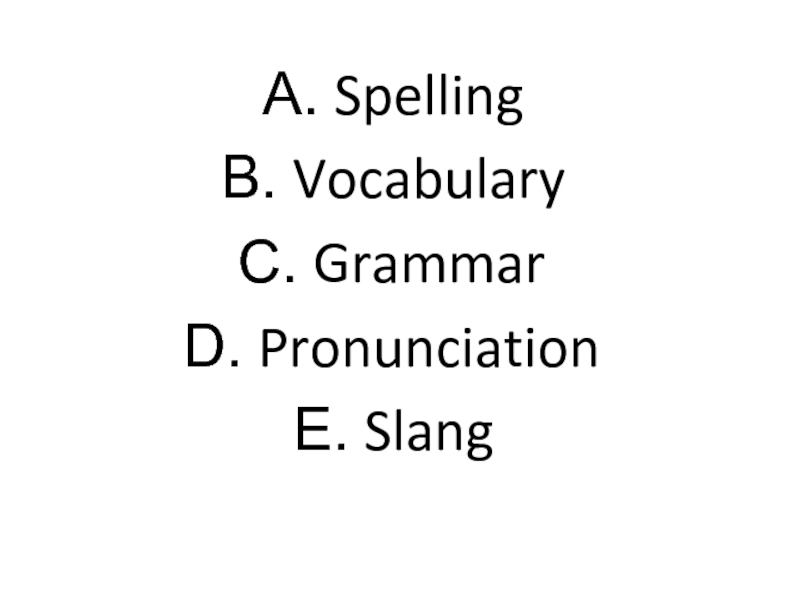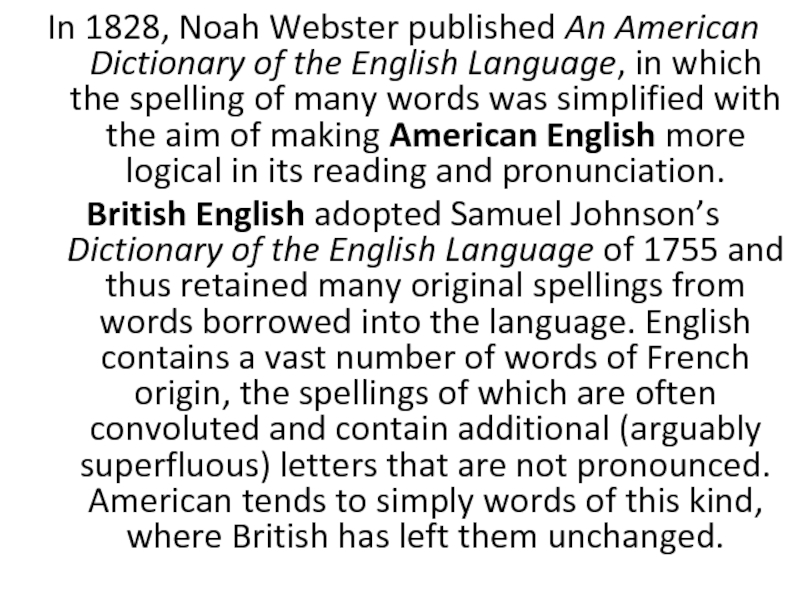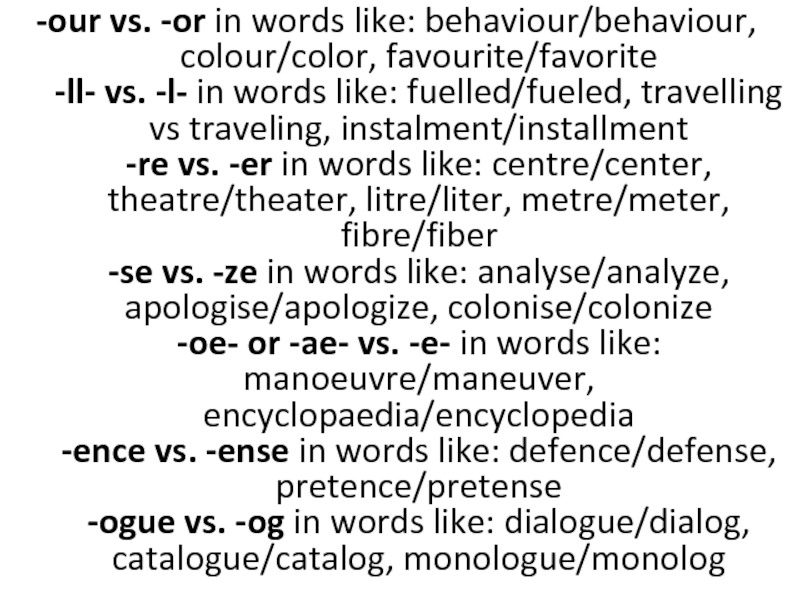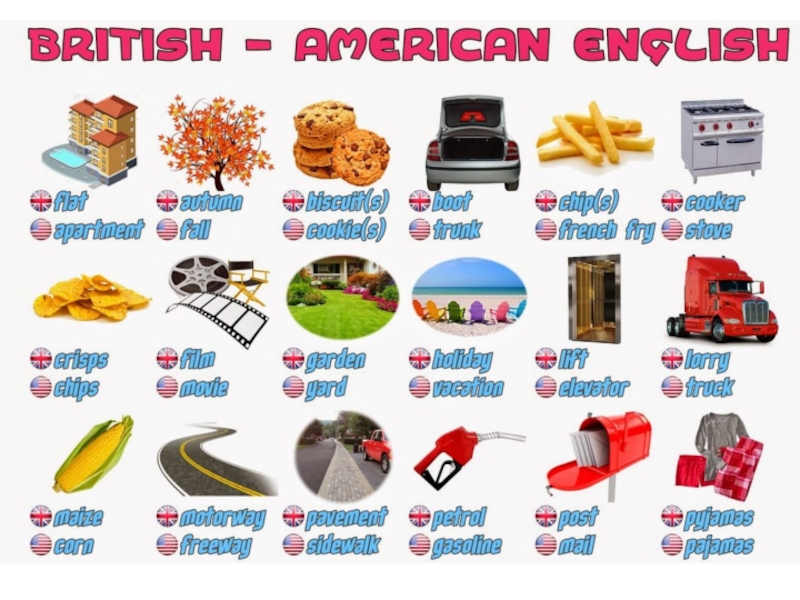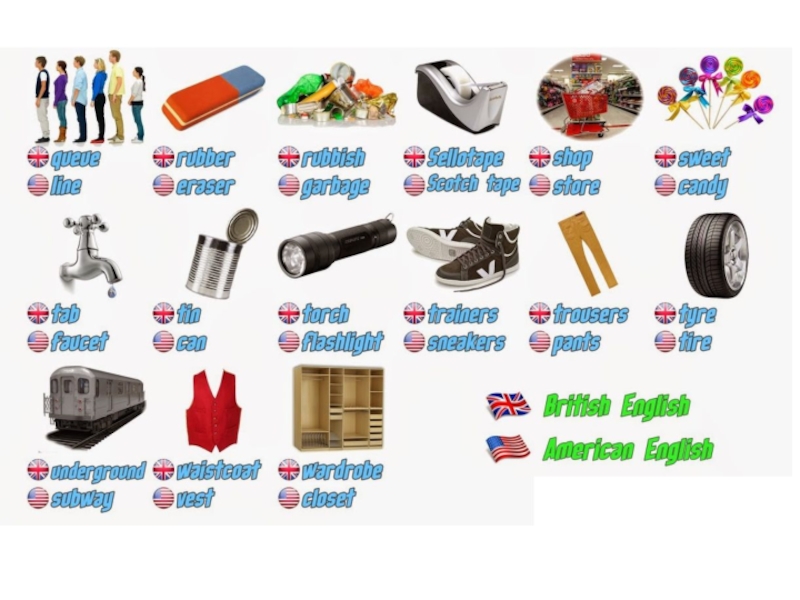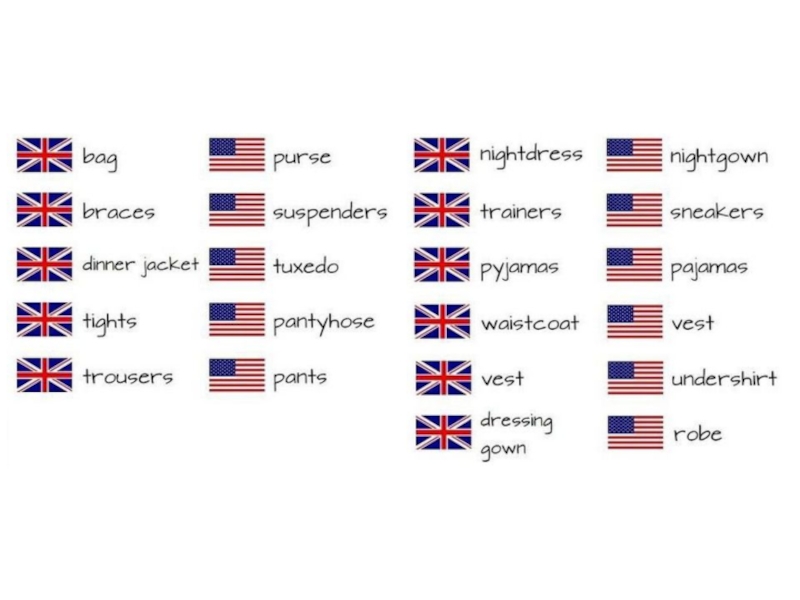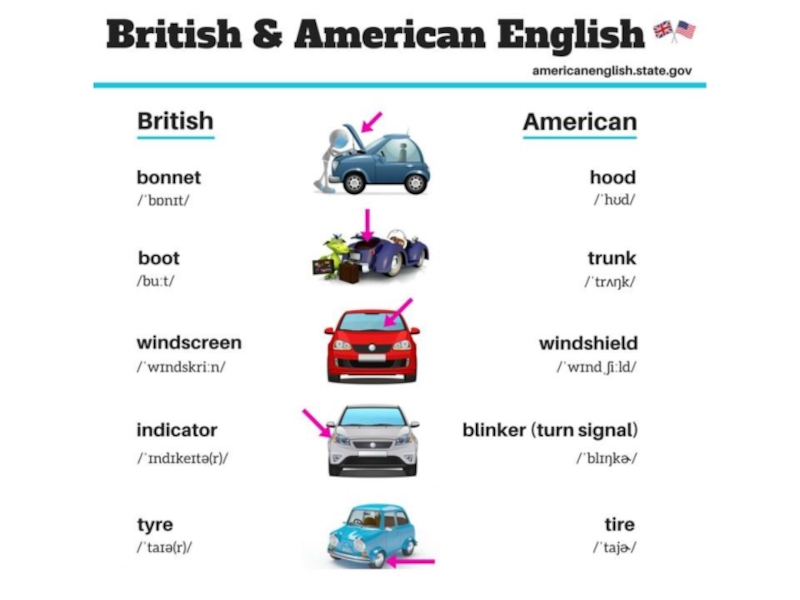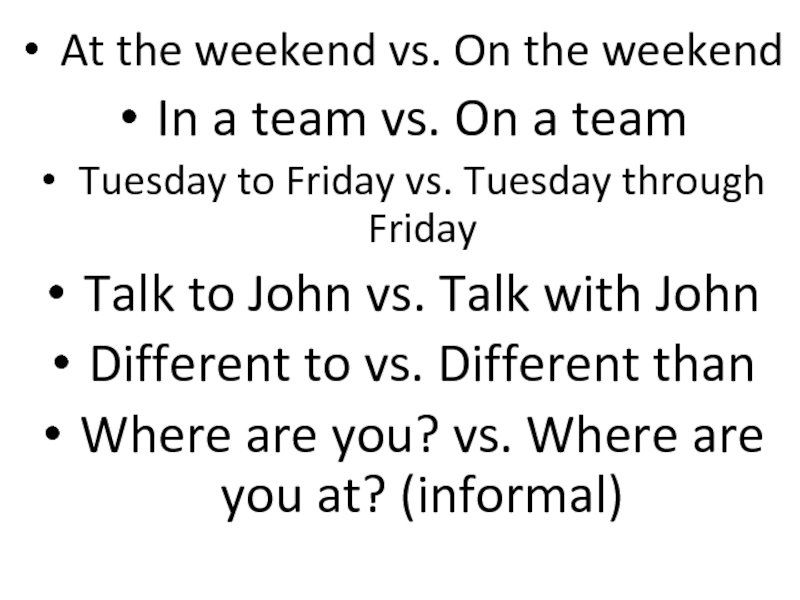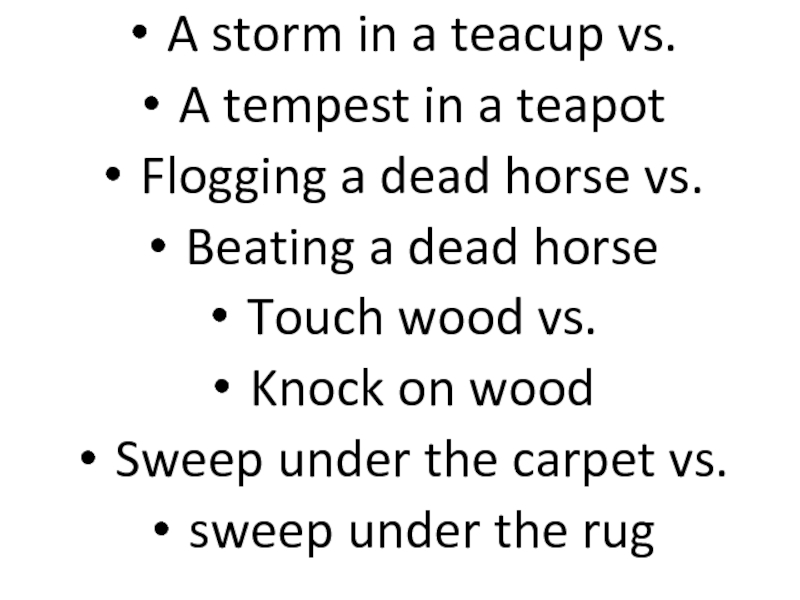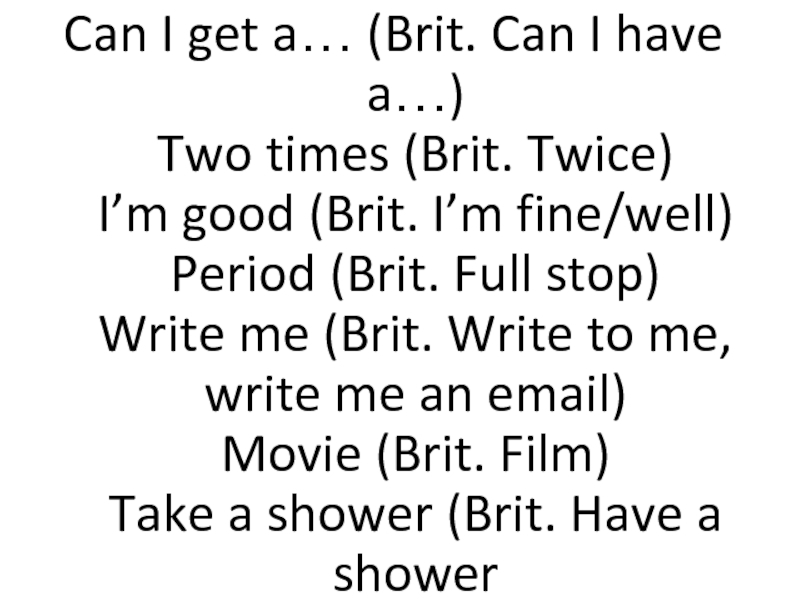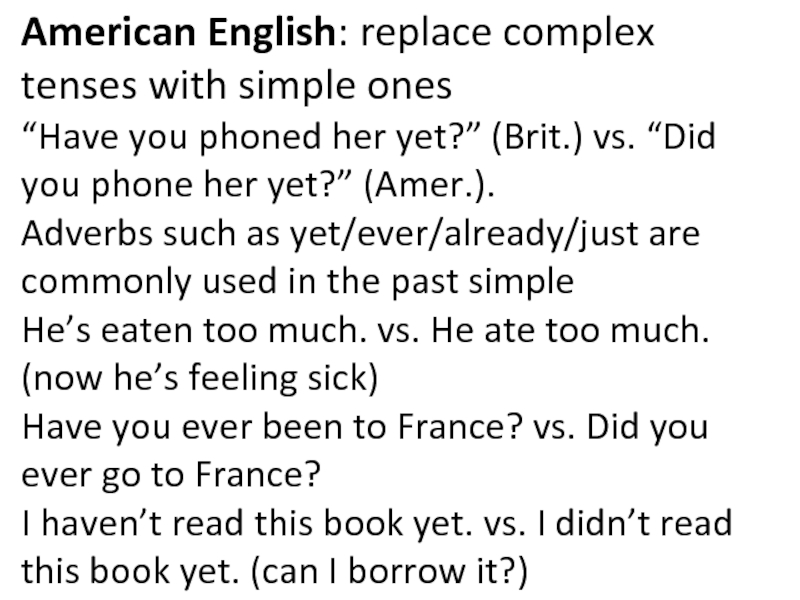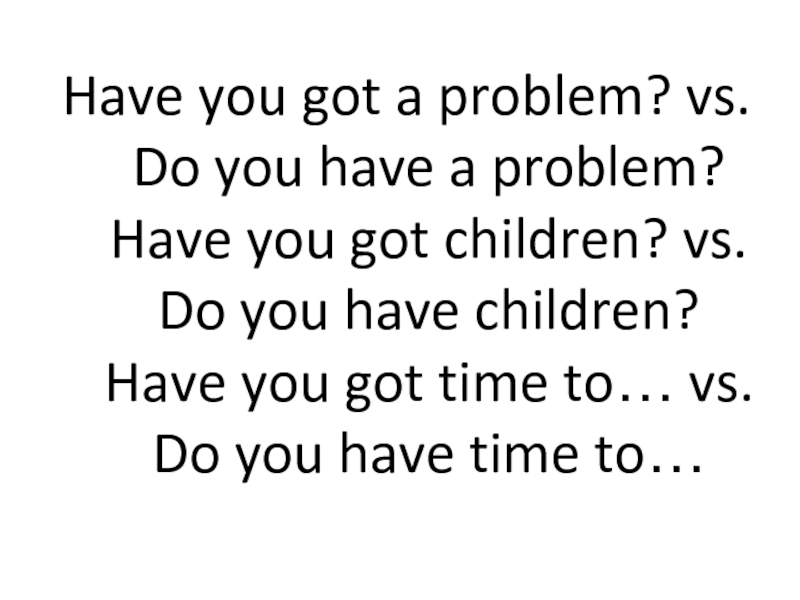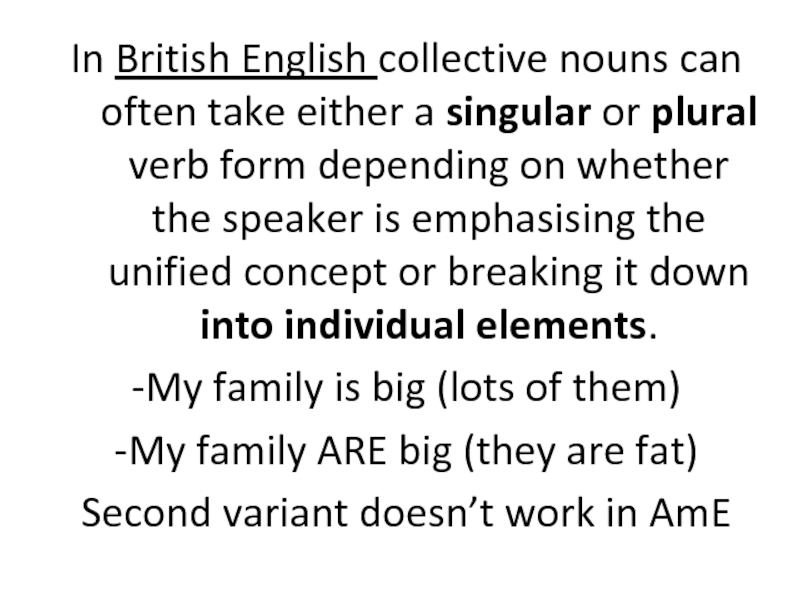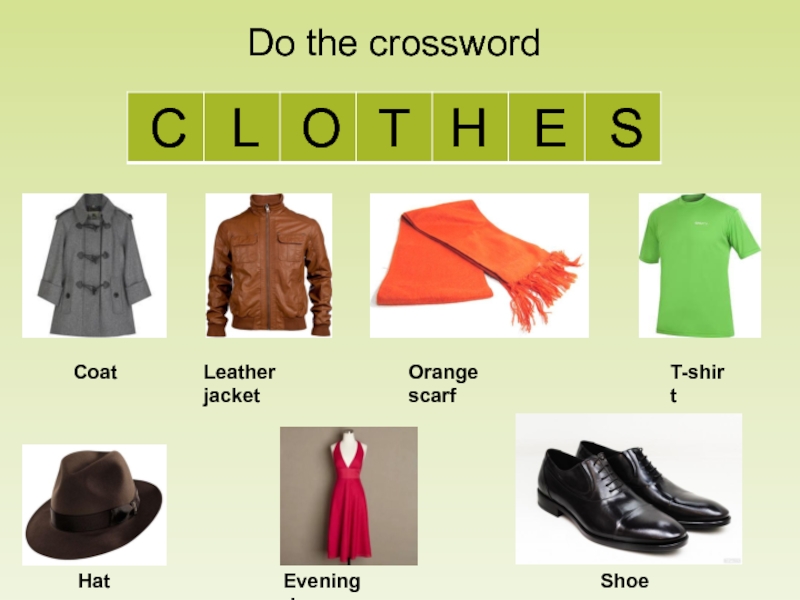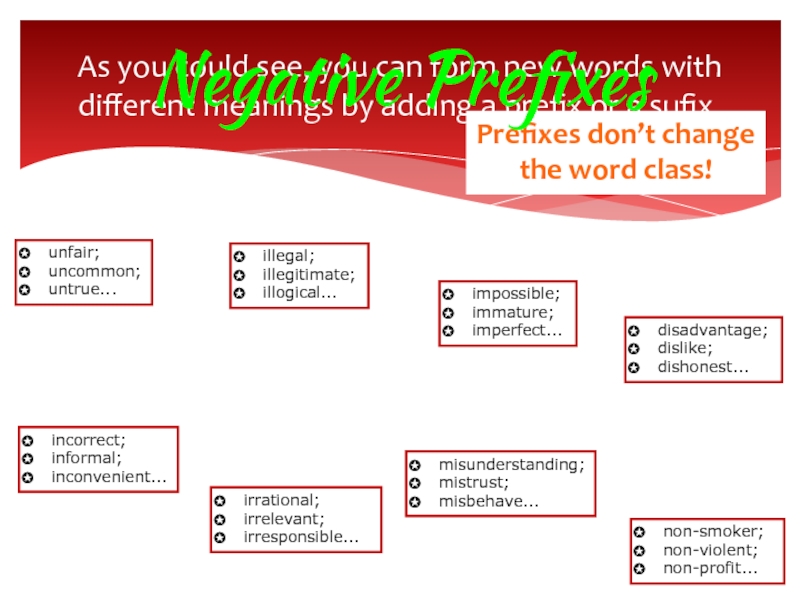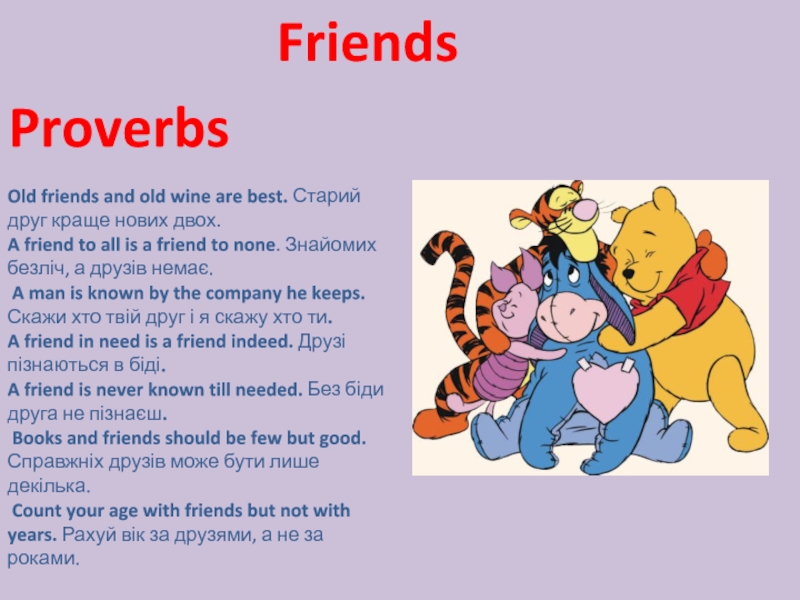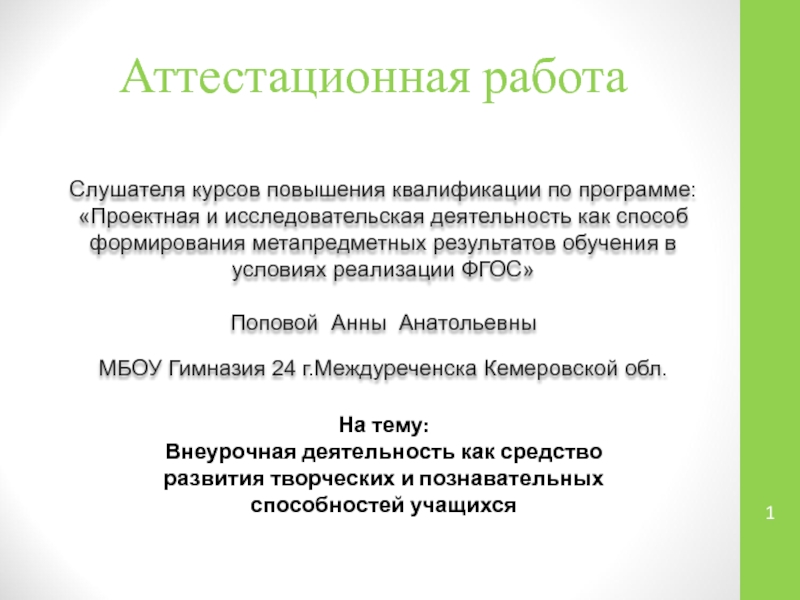- Главная
- Разное
- Дизайн
- Бизнес и предпринимательство
- Аналитика
- Образование
- Развлечения
- Красота и здоровье
- Финансы
- Государство
- Путешествия
- Спорт
- Недвижимость
- Армия
- Графика
- Культурология
- Еда и кулинария
- Лингвистика
- Английский язык
- Астрономия
- Алгебра
- Биология
- География
- Детские презентации
- Информатика
- История
- Литература
- Маркетинг
- Математика
- Медицина
- Менеджмент
- Музыка
- МХК
- Немецкий язык
- ОБЖ
- Обществознание
- Окружающий мир
- Педагогика
- Русский язык
- Технология
- Физика
- Философия
- Химия
- Шаблоны, картинки для презентаций
- Экология
- Экономика
- Юриспруденция
Американский словарь английского языка презентация
Содержание
- 2. Spelling Vocabulary Grammar Pronunciation Slang
- 3. In 1828, Noah Webster published An American
- 4. -our vs. -or in words like: behaviour/behaviour,
- 9. At the weekend vs. On the weekend
- 10. A storm in a teacup vs.
- 11. Can I get a… (Brit. Can I
- 12. American English: replace complex tenses with simple
- 13. Have you got a problem? vs. Do
- 14. In British English collective nouns can often
Слайд 3In 1828, Noah Webster published An American Dictionary of the English
Language, in which the spelling of many words was simplified with the aim of making American English more logical in its reading and pronunciation.
British English adopted Samuel Johnson’s Dictionary of the English Language of 1755 and thus retained many original spellings from words borrowed into the language. English contains a vast number of words of French origin, the spellings of which are often convoluted and contain additional (arguably superfluous) letters that are not pronounced. American tends to simply words of this kind, where British has left them unchanged.
British English adopted Samuel Johnson’s Dictionary of the English Language of 1755 and thus retained many original spellings from words borrowed into the language. English contains a vast number of words of French origin, the spellings of which are often convoluted and contain additional (arguably superfluous) letters that are not pronounced. American tends to simply words of this kind, where British has left them unchanged.
Слайд 4-our vs. -or in words like: behaviour/behaviour, colour/color, favourite/favorite -ll- vs. -l-
in words like: fuelled/fueled, travelling vs traveling, instalment/installment
-re vs. -er in words like: centre/center, theatre/theater, litre/liter, metre/meter, fibre/fiber
-se vs. -ze in words like: analyse/analyze, apologise/apologize, colonise/colonize
-oe- or -ae- vs. -e- in words like: manoeuvre/maneuver, encyclopaedia/encyclopedia
-ence vs. -ense in words like: defence/defense, pretence/pretense
-ogue vs. -og in words like: dialogue/dialog, catalogue/catalog, monologue/monolog
Слайд 9At the weekend vs. On the weekend
In a team vs. On
a team
Tuesday to Friday vs. Tuesday through Friday
Talk to John vs. Talk with John
Different to vs. Different than
Where are you? vs. Where are you at? (informal)
Tuesday to Friday vs. Tuesday through Friday
Talk to John vs. Talk with John
Different to vs. Different than
Where are you? vs. Where are you at? (informal)
Слайд 10A storm in a teacup vs.
A tempest in a teapot
Flogging
a dead horse vs.
Beating a dead horse
Touch wood vs.
Knock on wood
Sweep under the carpet vs.
sweep under the rug
Beating a dead horse
Touch wood vs.
Knock on wood
Sweep under the carpet vs.
sweep under the rug
Слайд 11Can I get a… (Brit. Can I have a…) Two times (Brit.
Twice)
I’m good (Brit. I’m fine/well)
Period (Brit. Full stop)
Write me (Brit. Write to me, write me an email)
Movie (Brit. Film)
Take a shower (Brit. Have a shower
Слайд 12American English: replace complex tenses with simple ones
“Have you phoned
her yet?” (Brit.) vs. “Did you phone her yet?” (Amer.).
Adverbs such as yet/ever/already/just are commonly used in the past simple
He’s eaten too much. vs. He ate too much. (now he’s feeling sick) Have you ever been to France? vs. Did you ever go to France? I haven’t read this book yet. vs. I didn’t read this book yet. (can I borrow it?)
Adverbs such as yet/ever/already/just are commonly used in the past simple
He’s eaten too much. vs. He ate too much. (now he’s feeling sick) Have you ever been to France? vs. Did you ever go to France? I haven’t read this book yet. vs. I didn’t read this book yet. (can I borrow it?)
Слайд 13Have you got a problem? vs. Do you have a problem? Have
you got children? vs. Do you have children?
Have you got time to… vs. Do you have time to…
Слайд 14In British English collective nouns can often take either a singular
or plural verb form depending on whether the speaker is emphasising the unified concept or breaking it down into individual elements.
-My family is big (lots of them)
-My family ARE big (they are fat)
Second variant doesn’t work in AmE
-My family is big (lots of them)
-My family ARE big (they are fat)
Second variant doesn’t work in AmE

